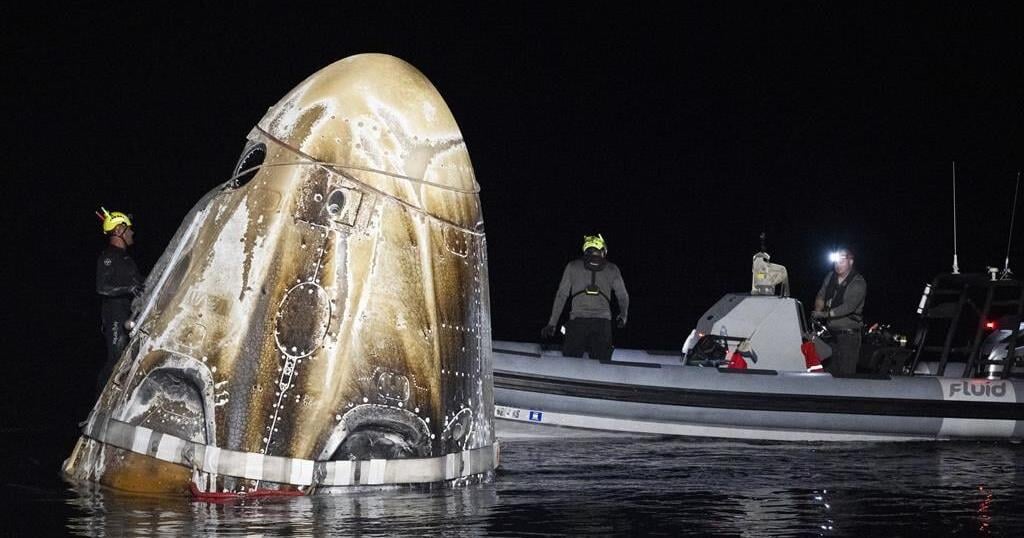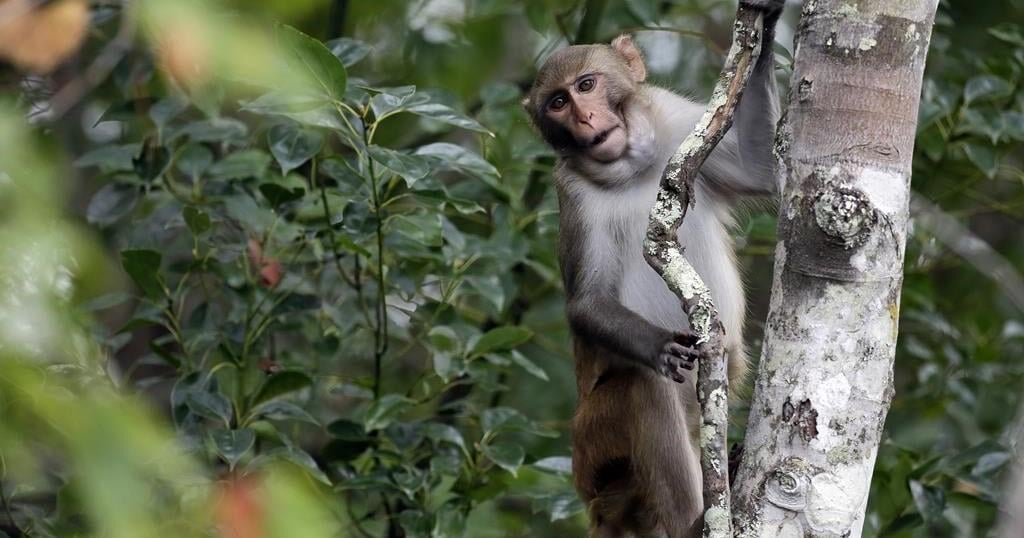OTTAWA — Some Canadians will soon be restricted from accessing news content on Facebook and Instagram, as parent company Meta begins running tests in response to the Liberal government’s online news bill.
News
Meta launches tests blocking news for some Canadians on Facebook, Instagram
Some Canadians will soon be restricted from accessing news on Facebook and Instagram, as Meta runs tests in response to Bill C-18

The tests are in response to the Liberal government’s Bill C-18, which is currently in the Senate and could become law by the end of the month. The legislation would force Meta and Google to share revenues with Canadian news publishers by reaching commercial deals (Postmedia, publisher of the National Post, is in favour of the bill.)
Meta’s tests will begin in the coming days and will last for a few weeks. Between one and five per cent of Canadian users will be affected, and those who are affected will be notified. Both the individuals and news outlets will be chosen at random.
In a statement to the National Post, Heritage Minister Pablo Rodriguez said he wouldn’t be swayed by a “threat.”
“When a big tech company, whatever the size is, the amount of money and the powerful lawyers they have, they come here and they tell us, if you don’t do this or that, then I’m pulling the plug – that’s a threat and that is unacceptable,” he said. “I never did anything because I was afraid of a threat, and I will never do it.”
Paul Deegan, president of publishers’ group News Media Canada said Meta’s decision to deny “access to trusted sources of news for some of their users, as wildfires rage across Alberta and Nova Scotia and public safety is at stake, is totally irresponsible and is a smack in the face to Canadians.”
“Meta’s unilateral action is more evidence of the power imbalance that exists between dominant platforms and publishers, which is why parliamentarians need to pass the Online News Act before their summer recess,” Deegan said.
Meta has previously said it will pull news off its platforms if Bill C-18 passes in its current form, and Google, which earlier this year ran tests that blocked news for some Canadians on Google search, has said it’s still deciding whether it will do the same once the bill becomes law.
The bill applies to Big Tech companies — Meta and Google, and potentially others — that “make news available.” That covers content publishers and users share on Facebook, or that Google indexes in its search results, for example. Removing news content from appearing on their platforms would mean the companies are no longer making news available, exempting them from the bill.
The premise of the legislation is that because the Big Tech companies benefit by having news content on their platforms, they should share revenues with news publishers—especially given Google and Meta earn 80 per cent of digital ad revenue in Canada. But the companies argue the value actually flows the other way, and that they drive traffic to the publishers’ websites.
Earlier this week, Brian Myles, director of Le Devoir, told the Senate committee studying the bill his newspaper gets 40 per cent of its traffic from Google search and nearly 30 per cent from social media.
“If Google and Facebook decide they will shut down news content on their own platforms, we will suffer a lot. Direct traffic is less than 20 per cent,” Myles said. “The days when a reader would open the newspaper from page one to the last page are gone. People discover content (through) the means of social platforms and search, and this threat is real.”
But the Globe also has other agreements with Google and Facebook in which “we pay quite a lot of money” to the companies “to deliver eyeballs. We depend on audience,” Crawley said.
If Bill C-18 passes, it would make Canada the second country in the world to have such legislation in place. The first was Australia, where Google also ran tests blocking news and Facebook temporarily pulled news off its platform in response to the bill.
Some observers have said the reason the two companies are fighting in Canada is because they’re concerned about the international precedent it could set, given other countries including United States, the United Kingdom, New Zealand and Brazil are working on similar legislation.
Curran denied that claim, saying Bill C-18 is drafted differently than legislation in countries. “It’s much broader in scope.”
“We are focused on the impacts in Canada … we’ve said it over and over again, that if we are forced to compensate publishers in Canada for content that they share voluntarily to our platforms, that’s not something we can work with.”

News
NASA astronauts won’t say which one of them got sick after almost eight months in space

CAPE CANAVERAL, Fla. (AP) — Three NASA astronauts whose prolonged space station mission ended with a trip to the hospital last month declined to say Friday which one of them was sick.
Astronauts Matthew Dominick, Michael Barratt and Jeanette Epps publicly discussed their spaceflight for the first time since returning from the International Space Station on Oct. 25. They spent nearly eight months in orbit, longer than expected because of all the trouble with Boeing’s Starliner crew capsule and rough weather, including Hurricane Milton.
Soon after their SpaceX capsule splashed down in the Gulf of Mexico off the Florida coast, the three were taken to a hospital in nearby Pensacola along with Russian cosmonaut Alexander Grebenkin, who launched with them back in March.
One of the Americans ended up spending the night there for an undisclosed “medical issue.” NASA declined to say who was hospitalized or why, citing medical privacy.
When asked at Friday’s news conference which one had been sick, the astronauts refused to comment. Barratt, a doctor who specializes in space medicine, declined to even describe the symptoms that the unidentified astronaut had.
“Spaceflight is still something we don’t fully understand. We’re finding things that we don’t expect sometimes. This was one of those times and we’re still piecing things together on this,” said Barratt, the only member of the crew who had flown in space before.
Epps said everyone is different in how they respond to space — and gravity.
“That’s the part that you can’t predict,” she said, adding, “Every day is better than the day before.”
Dominick said little things like sitting comfortably in a hard chair took several days to get used to once he returned. He said he didn’t use the treadmill at all during his time in space, as part of an experiment to see what equipment might be pared on a long trip to Mars. The first time he walked was when he got out of the capsule.
The two astronauts who served as test pilots for Boeing’s Starliner — Butch Wilmore and Suni Williams — will remain at the space station until February, flying back with SpaceX. Starliner returned empty in September.
___
The Associated Press Health and Science Department receives support from the Howard Hughes Medical Institute’s Science and Educational Media Group. The AP is solely responsible for all content.
The Canadian Press. All rights reserved.
News
43 monkeys remain on the run from South Carolina lab. CEO thinks they’re having an adventure

COLUMBIA, S.C. (AP) — Forty-three monkeys bred for medical research that escaped a compound in South Carolina have been spotted in the woods near the site and workers are using food to try to recapture them, authorities said Friday.
The Rhesus macaques made a break for it Wednesday after an employee at the Alpha Genesis facility in Yemassee didn’t fully lock a door as she fed and checked on them, officials said.
“They are very social monkeys and they travel in groups, so when the first couple go out the door the others tend to just follow right along,” Alpha Genesis CEO Greg Westergaard told CBS News.
Westergaard said his main goal is to have the monkeys returned safely with no other problems. “I think they are having an adventure,” he said.
The monkeys on Friday were exploring the outer fence of the Alpha Genesis compound and are cooing at the monkeys inside, police said in a statement.
“The primates are exhibiting calm and playful behavior, which is a positive indication,” the police statement said, adding company workers are closely watching the monkeys while keeping their distance as they work to safely recapture them.
The monkeys are about the size of a cat. They are all females weighing about 7 pounds (3 kilograms).
Alpha Genesis, federal health officials and police all said the monkeys pose no risk to public health. The facility breeds the monkeys to sell to medical and other researchers.
“They are not infected with any disease whatsoever. They are harmless and a little skittish,” Yemassee Police Chief Gregory Alexander said Thursday.
Authorities still recommend that people who live near the compound about 1 mile (1.6 kilometers) from downtown Yemassee shut their windows and doors and call 911 if they see the monkeys. Approaching them could make them more skittish and harder to capture, officials said.
Eve Cooper, a biology professor at the University of Colorado Boulder who has studied rhesus macaques, said the animals have the potential to be dangerous and urged people to keep their distance.
Rhesus macaques monkeys can be aggressive. And some carry the herpes B virus, which can be fatal to humans, Cooper said.
However, Alpha Genesis states on its website that it specializes in pathogen-free primates. Cooper noted that there are pathogen-free populations of rhesus macaques that have been quarantined and tested.
“I would give them a wide berth,” Cooper said. “They’re unpredictable animals. And they can behave quite aggressively when they’re afraid.”
Alpha Genesis provides primates for research worldwide at its compound about 50 miles (80 kilometers) northeast of Savannah, Georgia, according to its website.
Locally, it is known as “the monkey farm.” And there is more amusement than panic around Yemassee and its population of about 1,100 just off Interstate 95 about 2 miles from Auldbrass Plantation, a Frank Lloyd Wright house designed in the 1930s.
There have been escapes before, but the monkeys haven’t caused problems, said William McCoy, who owns Lowcountry Horology, a clock and watch repair shop.
“They normally come home because that’s where the food is,” he said.
McCoy has lived in Yemassee for about two years and while he plans to stay away from the monkeys, he has his own light-hearted plan to get them back.
“I’m stocking up bananas, maybe they’ll show up,” McCoy said.
The Alpha Genesis compound is regularly inspected by federal officials.
In 2018, the U.S. Department of Agriculture fined Alpha Genesis $12,600 in part after officials said 26 primates escaped from the Yemassee facility in 2014 and an additional 19 got out in 2016.
The company’s fine was also issued because of individual monkey escapes as well as the killing of one monkey by others when it was placed in the wrong social group, according to a report from the USDA.
The group Stop Animal Exploitation Now sent a letter Thursday to the USDA asking the agency to immediately send an inspector to the Alpha Genesis facility, conduct a thorough investigation and treat them as a repeated violator. The group was involved in the 2018 fine against the company.
“The clear carelessness which allowed these 40 monkeys to escape endangered not only the safety of the animals, but also put the residents of South Carolina at risk,” wrote Michael Budkie, executive director of the group.
The USDA, which has inspected the compound 10 times since 2020, didn’t immediately respond to the letter.
The facility’s most recent federal inspection in May showed there were about 6,700 primates on site and no issues.
In a 2022 review, federal veterinarians reported two animals died when their fingers were trapped in structures and they were exposed to harsh weather. They also found cages weren’t adequately secure. Inspectors said criminal charges, civil penalties or other sanctions could follow if the problems weren’t fixed.
Since then, Alpha Genesis has undergone six inspections with minor problems reported only once.
In January 2023, the USDA said temperatures were out of the 45 to 85 degree Fahrenheit (7.2 to 29.5 degree Celsius) required range at some of the compound’s monkey cages. The inspection found moldy food in one bin, sharp edges on a gate that could cut an animal and sludge, food waste, used medical supplies, mechanical equipment, and general construction debris on the grounds.
Supporters of medical research involving nonhuman primates said they are critical to lifesaving medical advances like creating vaccines against COVID-19 because of their similarities to people. Keeping a domestic supply of the animals is critical to prevent shortages for U.S. researchers.
Humans have been using the rhesus macaque for scientific research since the late 1800s. Scientists believe that rhesus macaques and humans split from a common ancestor about 25 million years ago and share about 93% of the same DNA.
These monkeys have been launched into space on V2 rockets, used for AIDS research, had their genome mapped and made stars of their own reality television show. They were in such high demand in the early 2000s that a shortage led to scientists paying up to $10,000 per animal.
Outside of rats and mice, rhesus macaques are one of the most studied animals on the planet, said Dario Maestripieri, a behavioral scientist at the University of Chicago who wrote the 2007 book “Macachiavellian Intelligence: How Rhesus Macaques and Humans Have Conquered the World.”
The animals are very family oriented, siding with relatives when fights break out. And they’re adept at building political alliances in the face of threats from other monkeys. But they can be painful to watch. Monkeys with lower status in the hierarchy live in a constant state of fear and intimidation, Maestripieri said.
“In some ways, they kind of represent some of the worst aspects of human nature,” Maestripieri said.
___
Lovan reported from Louisville, Kentucky, and Finley reported from Norfolk, Virginia.
News
Freeland says she’s ready to deal with Trump |

Finance Minister Chrystia Freeland speaks with reporters after chairing a special cabinet committee working on Canada’s plan to deal with the incoming Donald Trump administration. Freeland says she’s stood up for Canadian interests in the past and is ready to go another round. (Nov. 8, 2024)
-

 News12 hours ago
News12 hours agoFreeland says she’s ready to deal with Trump |
-

 Business23 hours ago
Business23 hours agoTelus prioritizing ‘most important customers,’ avoiding ‘unprofitable’ offers: CFO
-

 News12 hours ago
News12 hours agoNASA astronauts won’t say which one of them got sick after almost eight months in space
-

 News24 hours ago
News24 hours agoWho will buy Infowars? Both supporters and opponents of Alex Jones interested in bankruptcy auction
-

 News12 hours ago
News12 hours ago43 monkeys remain on the run from South Carolina lab. CEO thinks they’re having an adventure
-

 Politics21 hours ago
Politics21 hours ago‘Disgraceful:’ N.S. Tory leader slams school’s request that military remove uniform
-

 News24 hours ago
News24 hours ago‘Big frustration’: How a limited MAID window affects Alzheimer’s patients
-

 Politics23 hours ago
Politics23 hours agoSaskatchewan NDP’s Beck holds first caucus meeting after election, outlines plans


















